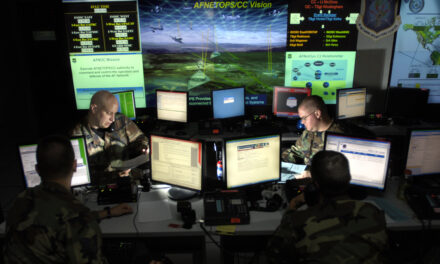We support our Publishers and Content Creators. You can view this story on their website by CLICKING HERE.
- President Yoon Suk-yeol banned from leaving South Korea after martial law declaration
- National Assembly unanimously blocked martial law, forcing Yoon to rescind the order
- Criminal investigation launched into Yoon for treason, with police raids on his office
- Protests demand Yoon’s resignation; impeachment efforts face uncertainty
- Military leaders say they’ll refuse further martial law orders, undermining Yoon’s authority
South Korea’s political turmoil reached new heights this week as President Yoon Suk-yeol was banned from leaving the country following his ill-fated attempt to declare martial law. The decision, which has left the nation reeling, marks a dramatic escalation in the ongoing crisis surrounding Yoon’s presidency.
His declaration of martial law, although short-lived, has ignited widespread anger and unease among South Koreans. In a televised address, Yoon claimed the measure was necessary to combat “unscrupulous pro-Pyongyang anti-state forces,” blaming opposition lawmakers for obstructing his policy agenda. However, the move was met with immediate backlash, as the National Assembly swiftly convened to vote against the decree.
The scenes that unfolded were chaotic and deeply symbolic. Lawmakers, determined to uphold democracy, scaled walls and confronted heavily armed soldiers to reach the legislative chambers. Despite the deployment of nearly 300 troops outside, the Assembly voted unanimously to block martial law, forcing Yoon to rescind his order just six hours after it was declared.
For many South Koreans, the specter of martial law evokes painful memories of the past. Decades of military dictatorship, punctuated by brutal crackdowns such as the Gwangju Uprising in 1980, have left deep scars on the nation’s collective psyche. The brief but jarring return of martial law reignited fears and sparked protests demanding Yoon’s resignation.
Police raids and a travel ban
In the wake of the martial law debacle, South Korean authorities launched a criminal investigation into Yoon on charges of treason. The unprecedented move culminated in a travel ban, preventing the president from leaving the country. While such a measure is highly unusual for a sitting president, officials justified it as a routine precaution for a suspect who is facing serious charges and poses a flight risk.
The fallout extended beyond Yoon himself. Police raids targeted his office, and several key figures in his administration, including former Defense Minister Kim Yong-hyun, are under investigation. The former defense minister was detained, while other high-ranking officials face scrutiny for their roles in the martial law declaration.
Despite the travel ban, Yoon remains nominally in control of the military, although his authority has been severely undermined. Military leaders have publicly stated they would refuse any further martial law orders, raising questions about the stability of South Korea’s political and military leadership.
Protests and political uncertainty
The streets of Seoul have been a battleground of competing voices. Leftist groups have organized near-daily protests calling for Yoon’s immediate resignation, while conservative factions have rallied in his support. However, the anti-Yoon demonstrations have garnered more attention, both domestically and internationally, reflecting the widespread public disapproval of his actions.
The political landscape remains volatile. While the opposition Democratic Party has pushed for impeachment, Yoon’s conservative People Power Party (PPP) has blocked efforts to remove him from office. The PPP’s internal divisions have further complicated the situation, with some factions calling for Yoon to step down while others defend his presidency.
The next impeachment vote, scheduled for Saturday, will be a critical test of Yoon’s political survival. However, with the opposition eight seats short of the required majority, the outcome remains uncertain.
The events of the past week have forced South Koreans to confront their history. The trauma of living under martial law and dictatorship remains a raw wound, and Yoon’s actions have reopened it. His apology, delivered in a brief address, acknowledged the “anxiety and discomfort” caused by his decision but did little to quell the public’s anger.
As the nation grapples with this crisis, one thing is clear: South Korea’s democracy is resilient, but its leaders must learn from the past to avoid repeating its darkest chapters – and giving North Korea an opportunity to take advantage of the turmoil.
Sources for this article include:

 Conservative
Conservative  Search
Search Trending
Trending Current News
Current News 





